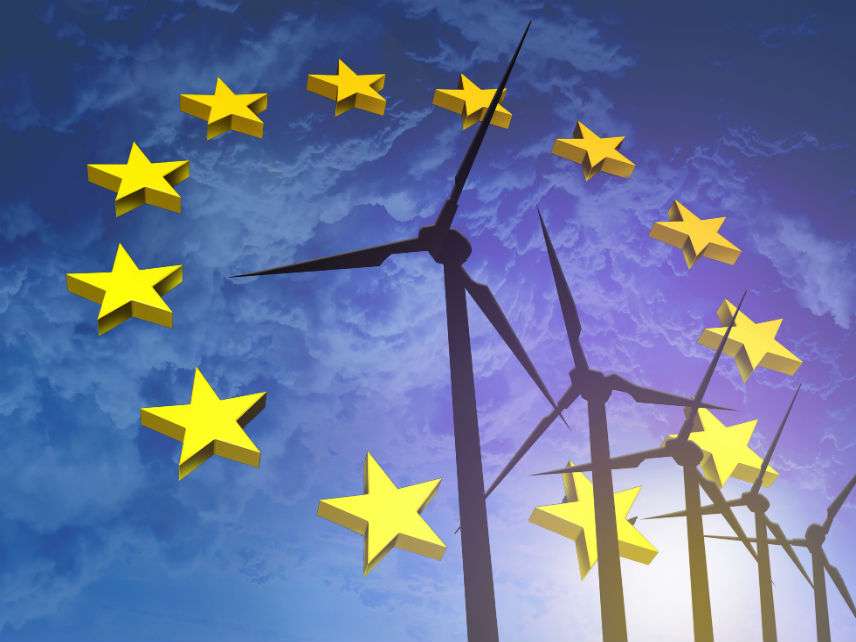Paris Agreement Climate Change
Carbon Dioxide: U.S. Emissions Down, European Emissions Up
Despite the E.U.'s carbon markets and vast renewable energy subsidies

Negotiators from 197 countries will be meeting for the next couple of weeks in Germany, where they're preparing for a larger United Nations climate change conference in Poland this fall. So how are all those countries doing when it comes to reducing emissions of greenhouse gases?
As the International Energy Agency recently reported,
Global energy-related CO2 emissions grew by 1.4% in 2017, reaching a historic high of 32.5 gigatonnes (Gt), a resumption of growth after three years of global emissions remaining flat. The increase in CO2 emissions, however, was not universal. While most major economies saw a rise, some others experienced declines, including the United States, United Kingdom, Mexico and Japan. The biggest decline came from the United States, mainly because of higher deployment of renewables.
The U.S.'s performance contrasts with that of the European Union, whose carbon dioxide emissions increased by 1.8 percent last year. This, even though many E.U. countries participate in a carbon market and are engaged in vast efforts aimed at replacing fossil fuels with wind and solar power.
Although the Trump administration is generally hostile to international climate change agreements, the Environmental Protection Agency reports that the U.S. reduced its carbon dioxide emissions by 2 percent in 2016. This drop is largely attributable to a continuing market-driven switch from coal to natural gas, to more renewable generation, and to a relatively mild winter.
The upshot is that both the U.S. and the E.U. have reduced their greenhouse gas emissions substantially over the past decade. In fact, a World Resources Institute report last fall concluded that the greenhouse gas emissions of 49 countries (including the U.S.) have already peaked. The majority of countries whose emissions have peaked did so well before any international climate agreement such as the Kyoto Protocol came into effect.


Show Comments (36)